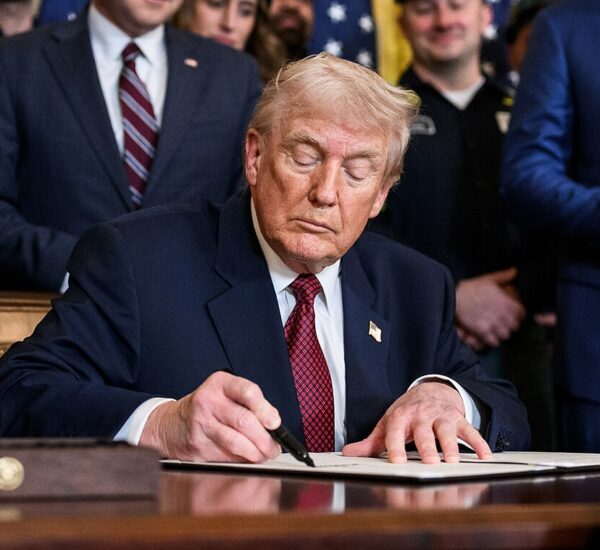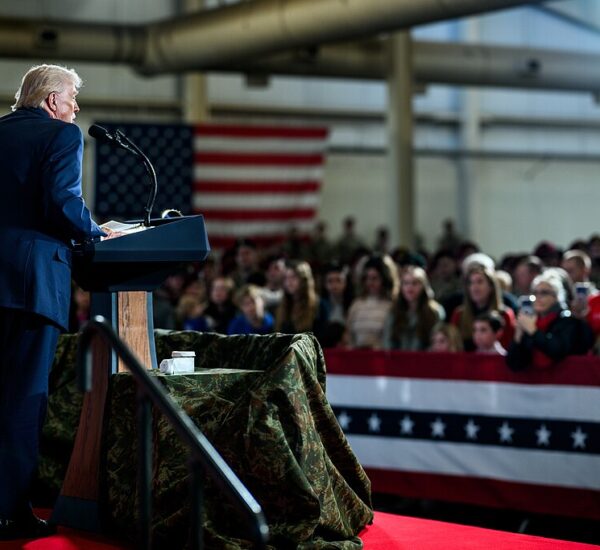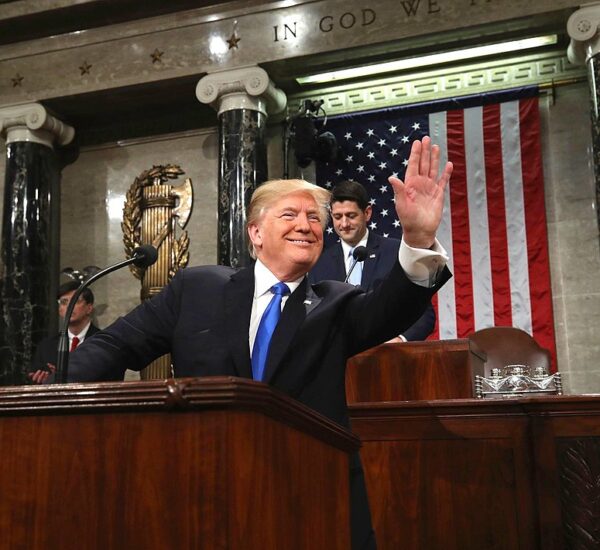Liberal Supreme Court Judge Sides With Trump?
Washington, D.C. — In a late-night twist, Supreme Court Justice Ketanji Brown Jackson temporarily halted a lower court order that would have forced President Trump’s administration to issue full SNAP food assistance payments by Friday, giving the administration a crucial — and much-needed — victory in the intensifying government shutdown battle.
Jackson’s decision effectively pauses a federal judge’s demand that billions in benefits be released immediately, buying time for the Trump administration as the U.S. Court of Appeals for the First Circuit reviews the government’s emergency appeal.
While the ruling isn’t final, it delivers a short-term lifeline to the administration as it navigates the funding standoff created by congressional gridlock.
“Based on the First Circuit’s statements, a temporary stay is necessary to allow the court to resolve the pending matter promptly,” Jackson wrote in her order.
As the justice assigned to emergency appeals from the First Circuit, Jackson issued the decision personally — one that could carry major consequences for both millions of Americans relying on food assistance and the future of executive authority during a funding freeze.
Trump Administration Vows to Keep Fighting
Attorney General Pam Bondi praised the move, promising that “our attorneys will not stop fighting, day and night, to defend and advance President Trump’s America-First agenda.”
Bondi’s statement echoed the broader sentiment among conservatives who say unelected judges have repeatedly interfered with President Trump’s policy goals, from border security to budget control.
SNAP Benefits Caught in the Political Crossfire
The Supplemental Nutritional Assistance Program (SNAP) — serving over 42 million Americans — has become the most visible symbol of the ongoing shutdown crisis, now stretching into its sixth week.
The U.S. Department of Agriculture (USDA) warned earlier that SNAP funds could run dry, marking the first complete cutoff of food benefits in U.S. history if new allocations aren’t approved.
Several Democrat-led cities and advocacy groups sued the Trump administration, accusing it of mishandling emergency funds. But the administration argues that Congress, not the courts, should decide how taxpayer money is spent — a position widely supported by fiscal conservatives.
Federal Judge’s Order Sparks Legal Firestorm
The clash began when U.S. District Judge John McConnell, a Biden appointee, ruled that the administration must drain a $5 billion contingency fund — a reserve intended for natural disasters — to pay November’s food benefits.
When that wasn’t enough, McConnell went even further, ordering the Trump administration to reroute $4 billion from child nutrition programs to cover the remaining gap.
The administration blasted the ruling as judicial overreach that could “upend the federal budget process” and warned it could “sow further shutdown chaos,” according to Solicitor General D. John Sauer.
After a three-judge panel refused to intervene, the administration appealed directly to the Supreme Court, arguing that only Congress has the constitutional authority to redirect billions in public funds.
USDA Moves Ahead as Legal Battle Continues
Even as the case moved rapidly through the courts, the USDA confirmed it was preparing to comply with the order while continuing its legal appeal — a sign of the administration’s commitment to law and order amid a chaotic funding environment.
Jackson’s decision gives the administration a temporary but significant reprieve, keeping the issue in legal limbo while the First Circuit decides whether to uphold or block McConnell’s order.
Bottom Line
This case highlights the deep constitutional divide between the Trump administration’s efforts to restore fiscal discipline and judicial interference driven by activist courts. For millions of Americans — especially seniors on fixed incomes — this fight could determine how future government shutdowns affect essential programs like food and healthcare assistance.






